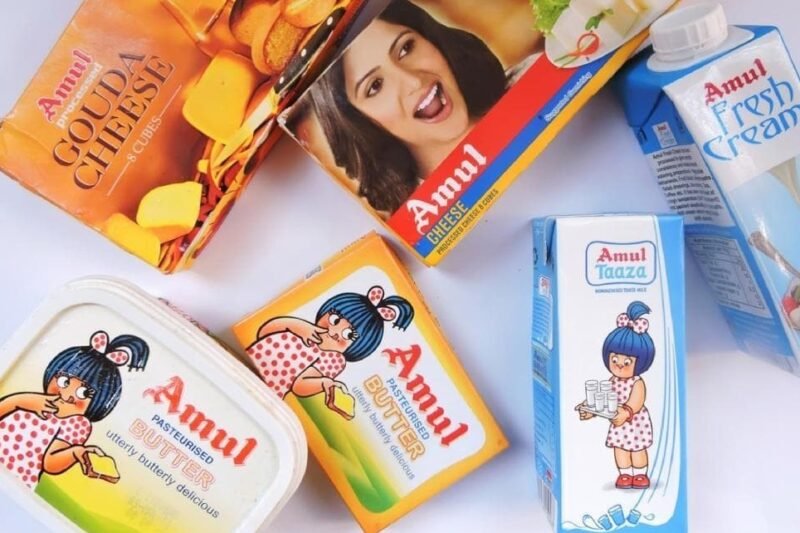
A video that recently resurfaced online has reignited concerns over the alleged tampering of Amul ice cream, sparking a wave of misinformation and public debate. The Gujarat Cooperative Milk Marketing Federation (GCMMF), which oversees the Amul brand, has swiftly denied any wrongdoing, reaffirming its commitment to maintaining the highest standards of product quality.
The video, originally circulated years ago, made its way back onto social media, accusing Amul of using non-vegetarian ingredients in its ice cream, particularly an emulsifier labeled as E-471, which the rumors claimed was derived from animal fat. This allegation triggered alarm among various communities, as Amul is widely known and trusted as a brand that delivers purely vegetarian products.
To quell the situation, R S Sodhi, Managing Director of GCMMF, issued an official statement through both video and print channels, dismissing the claims as false and malicious. Sodhi clarified that the emulsifier in question is derived from 100% plant-based oils, such as those from soybean, sunflower, or palm, which are commonly used in the food industry. He emphasized that Amul’s products adhere to strict vegetarian sourcing, aligning with the trust placed in the brand by millions of consumers across the country.
The controversy over the emulsifier is not new. Various food products globally use E-471, which can be derived from either plant or animal sources. The persistence of these rumors, despite clarification, appears to be part of a targeted misinformation campaign, with vested interests aiming to damage the reputation of one of India’s most beloved dairy brands. The swift public relations response by Amul underscores the company’s proactive stance in maintaining consumer trust and protecting its brand integrity.
The original video that caused the uproar showed alleged tampering of Amul’s ice cream packaging and implied that animal-based ingredients were being used, which stirred strong reactions, particularly among those adhering to vegetarian or religious dietary restrictions. However, GCMMF countered the claims, explaining that all processes in its manufacturing chain are transparent, strictly regulated, and in line with the company’s commitment to high-quality dairy production.
Social media platforms have played a central role in the spread of these allegations, prompting a range of reactions from consumers. While some voiced concerns about product safety, others came to the defense of the brand, highlighting their long-standing loyalty to Amul and dismissing the video as another attempt to mislead the public. Various users have expressed their unwavering trust in Amul, calling it a cornerstone of the Indian dairy industry. Many pointed out that Amul, as a cooperative, represents the interests of millions of farmers, making it an ethical brand focused on delivering value to both producers and consumers.
The controversy has led to renewed discussions about how easily misinformation spreads on social media, and the role of companies in actively addressing public concerns. Amul’s rapid response has been seen as a strategic effort to maintain consumer confidence amid growing digital challenges. Sodhi also urged the public to be cautious about believing unverified information circulating online, stressing the importance of relying on credible sources for product information.



